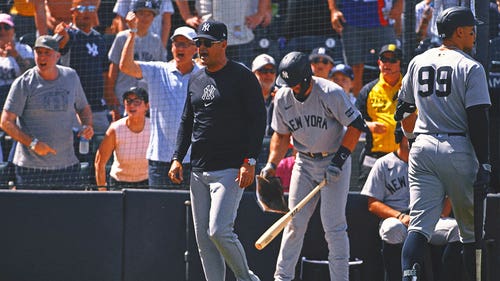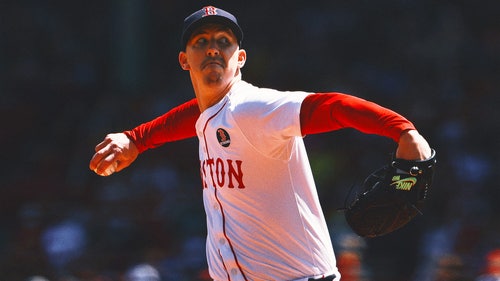
From the couch: All-star games need jolt
As all-star games go, baseball — given its individualist nature — ought to be the best of the bunch. Given understandable concern about injury, the Pro Bowl has rightfully been dismissed as an expensive game of “touch football.” The NBA’s exhibition, meanwhile, amounts to half a game — the missing ingredient being any defense whatsoever.
Alas, the 81st edition of Major League Baseball’s Midsummer Classic turned out to be a big ol’ yawn. The National League’ broke a 13-year losing streak in a 3-1 pitchers’ duel, a trivia footnote that in future years will clearly be the game’s most memorable attribute.
Maybe Americans have had scoring expectations lowered by several weeks of the World Cup, but thrilling, it wasn’t.
“Very little action,” announcer Joe Buck said more than once, half apologizing, and possibly wishing Fox could return to its extended pregame show, where the network promoted the series “Glee” and featured movie stars lauding people responsible for good works in their communities.
The excitement improved a bit in later innings, and it is fun watching guys throw 99-mile-an-hour fastballs. But the evening’s highlight remained a clever Old Spice commercial. Fox even appeared to miss part of the sixth inning during an ad break, perhaps dizzy after a sacrifice fly finally scored a run.
In the bigger picture, Fox is doubtless grateful for a splashy night of programming in the dog days of summer — a quirk of the calendar that partly explain why baseball’s showcase hasn’t migrated to cable like every other all-star game.
Yet enthusiasm for seeing the leagues square off has waned from its heyday. The ratings were respectable (an estimated 12.1 million viewers, per Nielsen, off 17% from last year’s 10-year high), still good enough to dominate the night. Other than sports-talk hosts who obsess about such matters, however, it’s hard to imagine Tuesday’s game yielding much heated water-cooler chat.
Of course, Major League Baseball’s past miscues haven’t helped. The principal gaffe came in 2002, when the game was called as a tie in the 11th inning. Commissioner Bud Selig then overcompensated by mandating that winning the All-Star Game would determine which league claimed home-field advantage during the World Series.
There are other culprits — from interleague play to the player selection process — but like a lot of events that don’t feel quite as special anymore, the main issue is sheer saturation. Once, it was enough to throw great players together and see what transpired. Today, they surround the game with a multi-day sport-a-palooza, teeming with actors and musical acts.
The leagues, of course, view these weekends as grand marketing opportunities, but the consequence is that the main games recede even further into the background. Peripheral made-for-TV, show-off events — the three-point shoot and slam-dunk contests in hoops, the home-run derby in baseball — can easily overshadow them.
Heck, the NBA dresses up its “All-Star Saturday Night” like a big sports/musical variety show. Soon they’ll add wacky stunts, practical jokes and voting players off the island — or at least, out of the arena.
For its part, the NFL has already shed the notion of every all-star participating in its game by scheduling the Pro Bowl before the Super Bowl, a first this year that meant the Super Bowl teams were unable to participate. Ratings unexpectedly surged 40% to 12.3 million viewers, the highest total in a decade. And in TV, ratings talk.
The MVP trophy that went to the Braves’ Brian McCann is named after Ted Williams, who once said, “They invented the All-Star game for Willie Mays,” based on how the Giants outfielder excelled in that setting like no one before or since.
Despite missteps, among all-star games baseball’s remains — to borrow a line from “The Daily Show’s” Jon Stewart — the thinnest kid at fat camp. But say hey, kids, because you don’t have to be a baseball purist to think Willie’s magic is gone, and it ain’t coming back.






